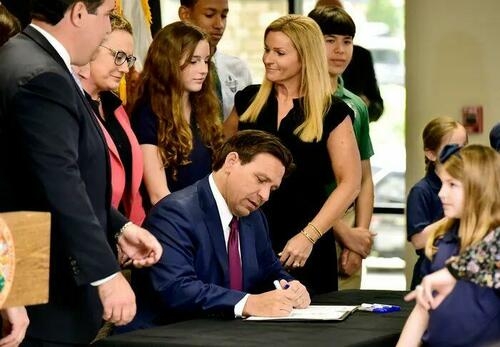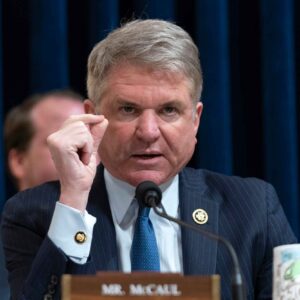Florida Governor Ron DeSantis enacted legislation on Monday banning minors under the age of 14 from creating social media accounts, marking one of the country’s strictest crackdowns on youth internet activity. House Bill 3, which will take effect January 1st, 2025, further requires 15- and 16-year-olds to have parental consent before joining social media platforms, and also contains new privacy protections and restrictions on access to online pornography.
When the law takes effect next year, social media companies will be required to disable accounts they believe to be owned by minors under 14, regardless of whether parents have consented to the social media usage or not. Platforms must also deactivate profiles and delete account data at the request of parents or minors.
Those between 14 and 16 can obtain parental consent, but existing accounts for minors in that age range must be deactivated if consent is not given retroactively.
The final version of House Bill 3 was watered down slightly from a previous proposal to extend the blanket ban up to 16. DeSantis vetoed that idea earlier this month, a week before the end of the annual legislative session.
Learn the benefits of becoming a Valuetainment Member and subscribe today!
The law does not name specific platforms but rather targets any app or program that uses “addictive features” to encourage compulsive use. According to the text of the bill, these features include (1) Infinite scrolling, which the bill defines as “continuously loading content, or content that loads as the user scrolls down the page without the need to open a separate page”; (2) Push notifications or alerts “to inform a user about specific activities or events related to the user’s account”; or (3) “Auto-play video or video that begins to play without the user first clicking on the video or on a play button for that video.”
Live-streaming platforms also fall under the ban.
“Being buried in those devices all day is not the best way to grow up—it’s not the best way to get a good education,” DeSantis said during a signing ceremony at the Cornerstone Classical Academy in Jacksonville, Florida, on Monday.
The bill’s other supporters called attention to new studies showing a direct link between extensive social media use and depression or mental health challenges in young people. Separate findings have also determined that unrestricted social media access leaves children vulnerable to cyberbullying and exploitation by online predators.
“A child, in their brain development, doesn’t have the ability to know that they’re being sucked into these addictive technologies, and to see the harm and step away from it,” Florida House Speaker Paul Renner, a Republican, said at the event. “And because of that, we have to step in for them.”
Related: New Mexico Sues Meta Platforms for Enabling Child Porn, Human Trafficking
Florida’s new restrictions draw inspiration from age verification laws proposed in states like Arkansas, Ohio, and California, but none of those states went as far as a total ban. Additionally, each of those other states was met with legal challenges that ultimately prevented the measures from taking effect.
Florida lawmakers similarly expect to be sued over alleged First Amendment violations, but Speaker Renner remains confident in House Bill 3’s ability to stand up under scrutiny. “We’re gonna beat them, and we’re never, ever gonna stop,” he said.
The bill’s other provisions included additional protections for online anonymity, as well as age verification requirements for pornographic or sexually explicit websites. Similar anti-pornography restrictions have been enacted in at least eight other states in the last year, forcing sites like PornHub, RedTube, and YouPorn (all owned by parent company Aylo) to disable access entirely.
Connor Walcott is a staff writer for Valuetainment.com. Follow Connor on X and look for him on VT’s “The Unusual Suspects.”



















Add comment